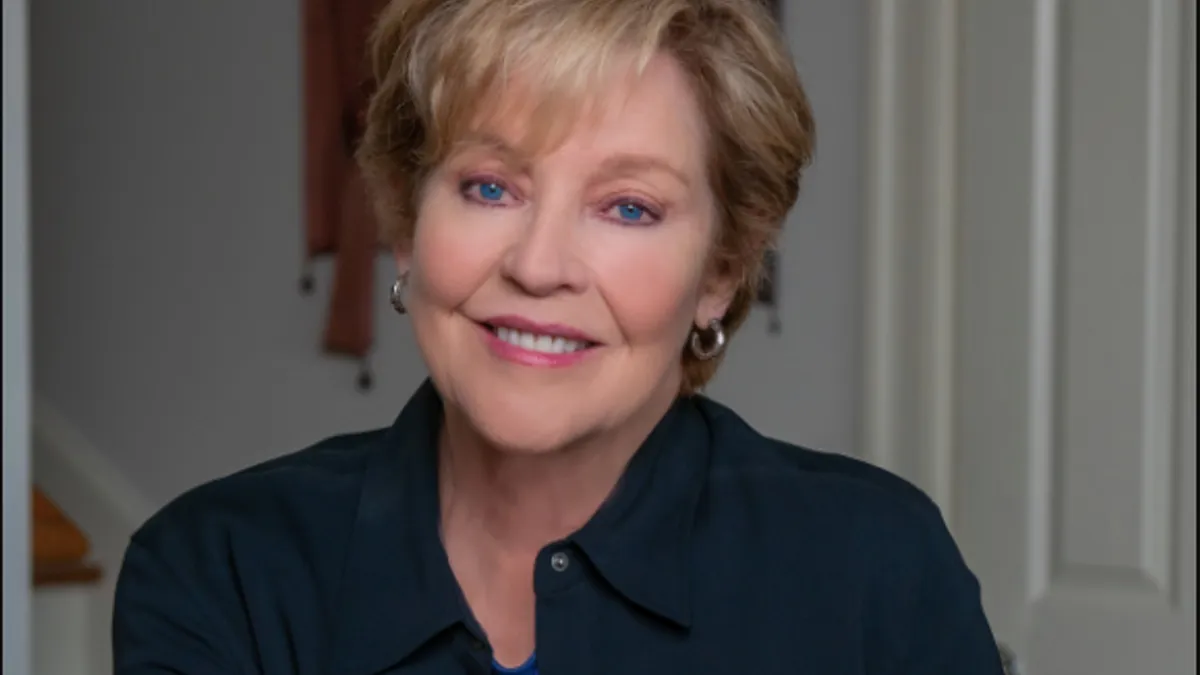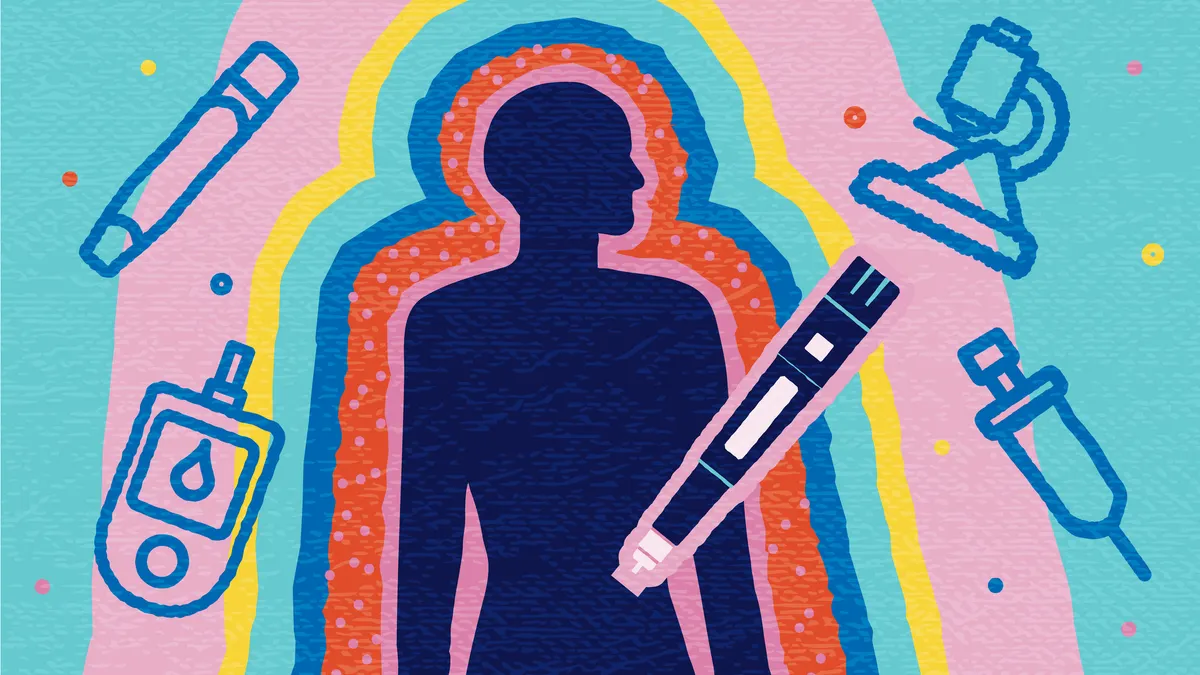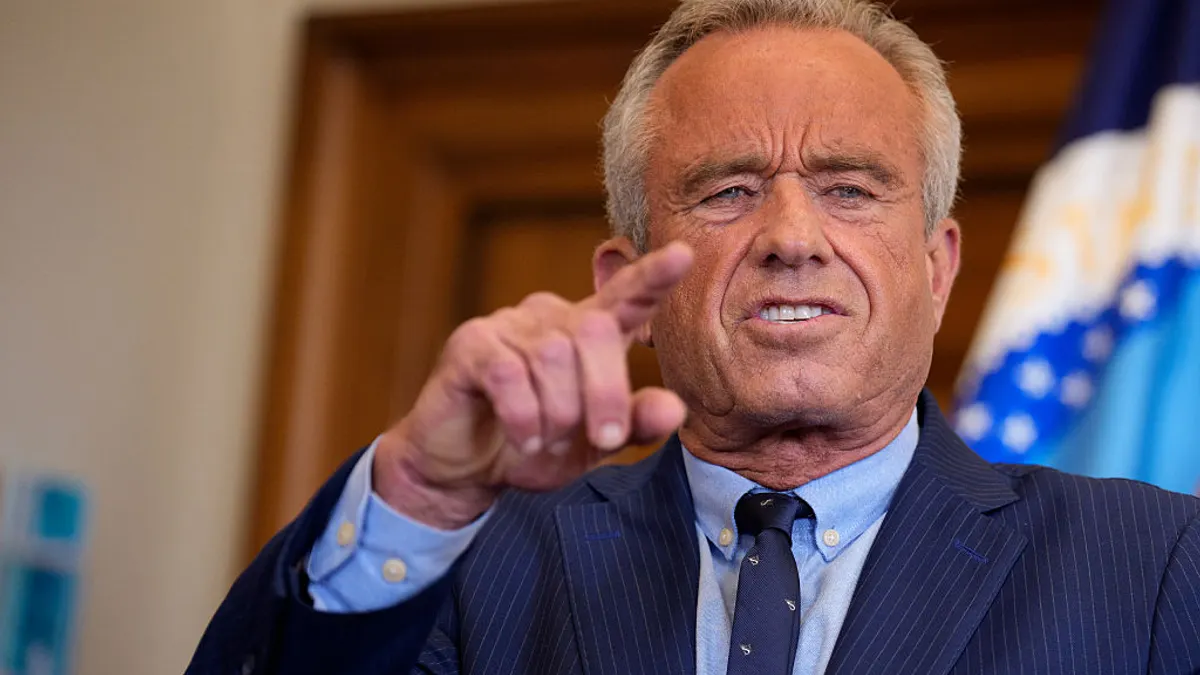Ronda Dean is very familiar with health clinic waiting rooms.
As a teenager, she went to the public health provider across the street from her college campus for contraception, and she did it without her parents knowing.
“I became very familiar with how important these providers are in the system, due to my own experience,” she said. “I was very lucky. I walked across the street to a Planned Parenthood and got great care there. They took care of me all through college.”
Now, as president, CEO and co-founder of Afaxys, which provides oral contraceptives to clinics in the U.S. public health sector, Dean still visits those waiting rooms to ensure she never loses sight of the patients they’re serving.
“If I'm out across the country visiting one of those health centers — whether it's a Planned Parenthood or a health department or a community health center — I always sit in the waiting room for a while,” she said. “It brings me back to when I was that patient and how scared I was. And then when I sit down with providers, it also allows me to support them in the important work they're doing.”
"If we undermine the FDA in one category it undermines the entire system, and then that puts the entire landscape of healthcare intervention at risk."

Ronda Dean
CEO, co-founder, Afaxys
That work has taken on new and urgent meaning. One year after the U.S. Supreme Court struck down Roe v. Wade, the results of that decision have been stark. The New York Times reports that dozens of clinics across the country have either closed or stopped offering abortions, and according to the United Nations Office of the High Commissioner for Human Rights, 14 U.S. states had banned abortion as of January. It also noted that the dismantling of Roe v. Wade “puts millions of women and girls at serious risk.”
Women’s health in the spotlight
Investment, treatment and research for women’s health has waxed, waned and lagged over the years. For instance, Bayer recently said it was shifting its clinical focus away from women’s health.
Along with “the devastating effects” that overturning the law has had on women’s lives, Dean points out there are also “19 million patients who live in contraceptive deserts across the U.S., meaning they can't access a quality reproductive healthcare provider within an hour’s driving distance.”
“I'm obviously a strong supporter of access to all forms of reproductive healthcare because complications associated with pregnancy are not to be taken lightly, and ensuring access to full service reproductive healthcare means all patients across the country get the care they need to have a family when they wish to have one,” she said.
Privately held Afaxys is a bit unusual because it focuses on patients served by the public health sector — its name is an amalgam of the words affordable and access — serving 8,400 health centers across the country with two subsidiaries. Dean calls it a first-of-its-kind “socially conscious healthcare company” that offers high-quality healthcare products at a low price, with much less focus on profitability.
“That sometimes is in contrast with what I call the ‘Big Pharma model,’ which is highest price at the highest margin possible,” she said. “I think you have to kind of turn that upside down and look at it more from [a standpoint of] how much volume do you need to achieve so that you can afford to operate at a lower profit margin.”
Afaxys Pharma, a subsidiary of Afaxys, licenses products and provides them under its own label to the public healthcare market. It currently offers 12 different products: 10 oral contraceptives, an emergency contraceptive and injectable anesthetic lidocaine, its first non-contraceptive product. Afaxys also has its own drug currently in development — although Dean wouldn’t divulge much about it, she said it was “a new form of contraception” that “will be of great interest.”
Its other subsidiary is Afaxys Group Services, which operates a group purchasing organization that Dean said “goes far beyond a contraceptive category,” negotiating prices for every product a health center needs to operate, “from pills to paperclips.”
Healthcare where it’s needed
Dean studied medical microbiology and bacteriology at Ohio State University, holds an MBA from Duke University and spent 16 years with Parke-Davis Pharmaceuticals, a division of Warner Lambert, as vice president and general manager of women’s healthcare before the company merged with Pfizer.
“The pharmaceutical industry, the one where I was trained, does not focus specifically on low-income populations and the products they need,” she said. “Once that need was uncovered and became apparent to me, it was an opportunity to do something about it.”
That need was revealed to her through a lifetime of interconnected experiences that all led to co-founding the company, from using a public health clinic as a teen, to running the women’s healthcare division at Parke-Davis, to seeing her father unable to afford a diabetes medication produced by her employer, to working as vice president of Planned Parenthood Federation of America.
Still, she said starting a company was a “surprise” because until Afaxys was founded in 2008, she hadn’t had entrepreneurial ambitions.
“The unmet need was so apparent, and we didn’t see anyone stepping in and up,” she said. “I realized what was needed was … the functional skillset of bringing it all together.”
Although overturning Roe v. Wade came as a shock to some, it wasn’t for Dean, who’s been watching the “chipping away of reproductive rights” for years.
Still, it’s hard for her to believe that people like judges can restrict access to FDA-approved products. For instance, a Texas judge in April tried to suspend the FDA’s 20-year-old approval of the abortion drug mifepristone.
“I've been in the pharmaceutical industry for … almost 30 years now. It's hard for me to even imagine that the FDA could be undermined in such a way that it would restrict the entire country's ability to access safe and effective medications across all forms of disease,” she said. “Reproductive healthcare is just one of those categories. And if we undermine the FDA in one category it undermines the entire system, and then that puts the entire landscape of healthcare intervention at risk. So that is deeply, deeply concerning me.”
Rather than being discouraged, Dean is more energized than ever.
“It’s made me more passionate,” she said.




















